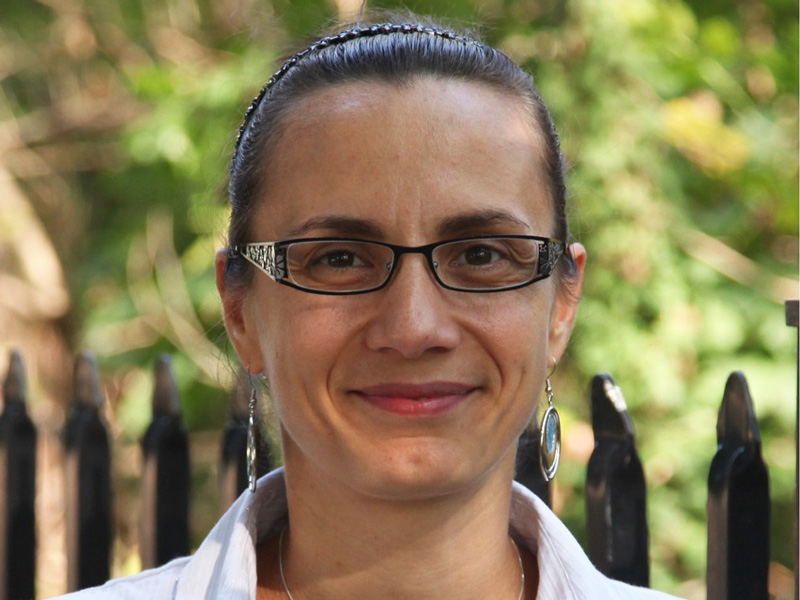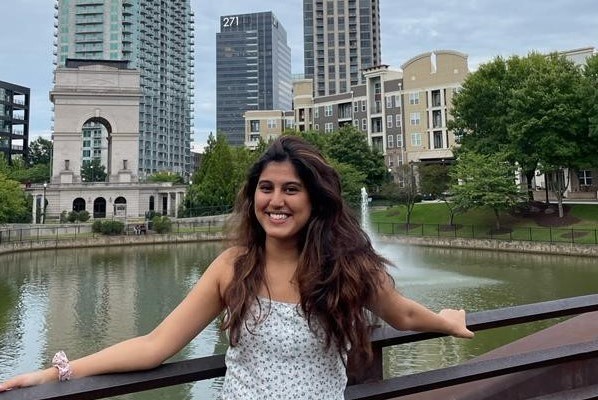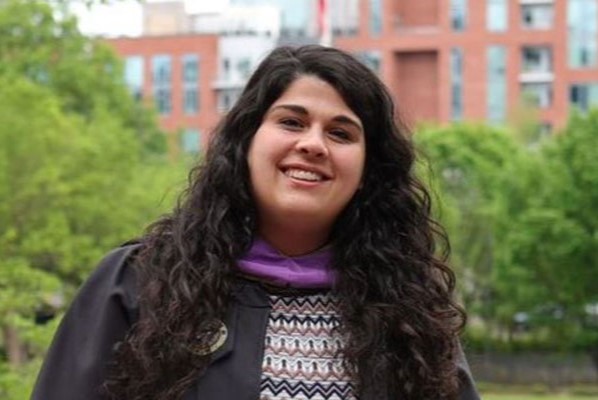Students will pick two of the following courses:
- CSE 6010: Computational Problem Solving (3)
- CSE 6040: Intro to Computing for Data Analysis (3)
- CSE 6240: Web Search and Text Mining (3)
- CSE 6740: Computational Data Analysis (3)
- ISYE 6416: Computational Statistics (3)
- ISYE 6412. Theoretical Statistics (3)
- ISYE 6414. Regression Analysis (3)
Students will pick two of the following courses:
- ISYE 6501: Intro Analytics Modeling (3)
- CSE 6220: Introduction to High Performance Computing (3)
- CSE 6242: Data and Visual Analytics (3)
- CS 6730: Data Visualization: Principles & Applications (3)
- CS 7450: Information Visualization (3)
- CSE/ECE 6730: Modeling and Simulation: Fundamentals & Implem. (3)
The final semester of the MSUA consists of a capstone course for the remaining 5 credits of study. There is a one-credit preparatory course for the capstone in the spring semester.
The capstone experience aims to give students real world experience as they work alongside clients to execute an urban analytics-focused project.
Applicants complete Georgia Tech’s Graduate Admissions online application, which will prompt them to include all necessary application materials. The priority application deadline for fall semester admission, if an applicant wishes to be considered for merit-based departmental aid, such as fellowships and graduate research assistantships, is January 15th. All other applications can be submitted by the regular application deadline which is February 15th or the final (late) application deadline which is March 15. Admission decisions are communicated to applicants typically within a month of the application deadline. We encourage applicants to submit their application sooner rather than later - this gives the admissions committee enough time to reach out with questions or an interview invitation if necessary.
Application materials:
- Georgia Tech Application for Graduate Admission
- Answers to the following three questions:
- Describe your career ambitions. Present a sense of what you hope to accomplish with your MS in urban analytics degree, in what setting, and how. Explain how you would use your graduate studies in MSUA to prepare yourself for these contributions.
- How have your prior studies, work, and other experiences prepared you to be successful in this program?
- Upon graduating from planning school, if you had 6 months and extensive funding to work on any planning-related issue of your choosing, on what issue do you think you would focus, what would you do for the 6 months, and why would you focus on that issue?
- Resume/Curriculum Vitae
- Three letters of recommendation.
- Official transcripts from all previously attended institutions of higher learning.
- Submitting Graduate Record Examination (GRE) Scores is required of all applicants with the exception of Georgia Tech undergraduates or graduates with a GPA of 3.0 or higher. GT students/graduates, for a GRE waiver, please contact Ms. Anna Traykova (anna.traykova@design.gatech.edu).
- Proof of English proficiency for applicants whose first language is not English: Test of English as a Foreign Language (TOEFL) with a minimum score of 100 or International English Language Testing System (IELTS) with a minimum score of 7.5. For a complete outline of the English proficiency requirement and ways to get exemptions from testing, please see https://grad.gatech.edu/english-proficiency
Applicants typically demonstrate academic performance that meets or exceeds the following criteria:
- A 3.0-4.0 undergraduate GPA and a 3.5 - 4.0 master’s degree GPA if applicable.
- Graduate Record Examination (GRE) Scores of 150 for Verbal Reasoning, 150 for Quantitative Reasoning, and 4.0 for Analytical Writing.
- TOEFL iBT Scores, if applicable, with a minimum of 100 or comparable IELTS score.
We are looking for exceptional students with a strong interest in the application of analytics/data-science to pressing urban challenges. Excellence in prior academic work is essential, and priority is given to applicants who have demonstrated effectiveness as leaders, analysts, and/or designers in previous paid or volunteer settings.
Students are admitted to the MS-UA program to begin studies in the fall term. Applicants can be considered for spring admissions under unique circumstances such as those experienced by transfer students and dual degree students.
Cost:
The total cost of the program depends on a number of factors: whether a student completes the program full-time or part-time, whether they are eligible for in-state tuition or pay non-resident tuition, whether students are exempt or not from health insurance fees, and what housing, personal and other expenses a student incurs.
Residents of 15 southern US states other than Georgia are potentially eligible for in-state tuition for study toward city planning graduate degrees at Georgia Tech through the Academic Common Market
Current tuition and fee information is available on the Bursar’s website and current year costs estimates that include average housing, meal plan, books, personal, travel and other expenses are posted on the office of Scholarships & Financial Aid website.
International students’ total annual cost for the 2023-2024 academic year is projected to be $53,402 – including tuition, fees, cost of living and miscellaneous related expenses. The estimate for the 2024-2025 academic year is expected to be available for publication in May 2024.
Financial Aid:
Georgia Institute of Technology provides a range of financial aid programs to lower the education costs for our students. To learn about the various merit-based and need-based financial aid options, as well as obtain information about relevant internal and external fellowship and educational loan programs, please visit SCaRPs financial aid page.
All MS-UA applicants who submit applications by the January 15 priority application deadline are automatically considered for merit-based aid, which is given primarily in the form of fellowships and graduate research or teaching assistantships.
Is the MS-UA program STEM-designated?
The MS-UA program is STEM-designated.
Are there application fee waivers?
Georgia Tech offers application fee waivers to qualifying applicants. Comprehensive information on whether you qualify for the Institute-sponsored application fee waiver program and how to request one if you do is available here. The School of City and Regional Planning is additionally offering a limited number of department-sponsored application fee waivers to applicants who do not fall in the waiver categories described; If paying the application fee poses an undue financial burden to you and you do not qualify for an Institute-sponsored fee waiver, you may apply to be considered for a SCaRP departmental application fee waiver by completing this form before December 1st.
What are the different application deadlines and how do they affect my chances of admission?
January 15 - priority application deadline; applicants who want to be considered for departmental merit-based aid (graduate research assistantships and fellowships) need to apply by this date.
February 15 - regular application deadline; candidates are encouraged to apply by this deadline; it gives the admissions committee enough time to reach out with questions or an interview invitation if necessary.
March 15 - final (late) application deadline; we understand some applicants cannot meet the regular application deadline for a variety of reasons; we can accommodate late applications that are submitted by March 15. Please note we encourage you to submit by the February 15 regular deadline if possible, and if submitting after February 15 to submit as early as possible.
Your chances of admission are not affected by the date of application submission.
Is the MS-UA program an online program?
The MS-UA program is a residential, on campus program.
Can the MS-UA program be completed by part-time students?
We encourage students who can devote their attention to the program full-time to do so. Yet, we realize that this is not possible for everyone and students can enroll part-time. If you plan to do this, please make sure that you discuss the implications this may have on financial aid options with the MS-UA academic advisor.
Does the School of City and Regional Planning host an on-campus open house for prospective applicants?
Because of feedback from our current and past students, we have transitioned to offering several online information sessions, rather than a prospective student open house. If you would like to visit our campus before you apply, please email us. If you would like a virtual tour of campus, there are several videos of various length available on YouTube. We also offer a virtual tour of campus and an open house for admitted students.
Do we have to reach out to professors before applying to the program?
We are excited to e-meet you all, and at the same time, faculty receive high volumes of emails. You do not have to make contact with professors before you apply to the program. The admissions committee is very happy to see your name for the first time when they look through applications, and there is no downside to not contacting professors before you apply.
Can prospective students speak to current students or alumni?
Yes, of course! You can meet a panel of current students during fall info sessions and you can reach out to our Student Ambassadors – current students who volunteer to answer prospective student questions. Our program directors sometimes invite alumni to join them for the virtual info sessions. And some of our full-time and part-time faculty are SCaRP alumni!
Is there a Georgia Tech's frequently asked questions page a.k.a. FAQ?
You can find the Institute grad school application FAQ here.
What are the next steps for admitted MS-UA students?
Congratulations! Our academic advisor will reach out to you shortly - if she hasn’t done so already - with information about our open house for admitted students, etc. In the meantime, please review this helpful information for accepted students page.




















